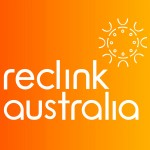
Transforming lives
- 22 Jul 2014
Steve Hutchinson from Reclink Australia talks about how arts can promote positive life change…
‘Before I started coming to art group I was in a bad place, sleeping rough, no real friends … it was sometimes weeks between people calling me by my name, except at Centrelink. In a few months I’ve done five paintings – three got sold at the last exhibition! The money helped me with bond on my new place. People miss me when I’m not here – I feel like a person again.’ (art group participant)
In Queensland approximately 20,000 people currently experience homelessness. One in five people will experience a significant mental health issue in their lives. The life of a struggling artist is often portrayed as difficult – the life of a person who is just struggling through each day, constantly encountering a myriad of obstacles can be transformed through the arts.
Reclink Australia is a national organisation with a focus on providing meaningful experiences for people experiencing complex life issues and socio-economic disadvantage through sports and the arts. The organisational model is a documented and researched example of best practice in social inclusion for some of the most marginalised and vulnerable groups. Many people in Australia are familiar with a Reclink program which became an award winning mini-series on the ABC called the Choir of Hard Knocks.
The process of promoting positive life change is often based on a medical model of intervention. Across mental health services and the social services sector there is increasing awareness and acknowledgement that arts based therapeutic approaches can complement existing support mechanisms and an alternative journey of recovery. An example is the growth in music and art therapy and practitioners.
Any involvement in artistic pursuits is inherently therapeutic. The intention is expression. When singing, playing or listening to music an emotive response is invoked and endorphins released. In a group or choir it is not just making a big sound but also about being a part of something bigger, promoting feelings of involvement, belonging and being valued as a person. It is about finding a voice for those who often don’t have one. As Hans Christian Andersen once wrote: ‘Where word’s fail, music speaks’. Visual art allows the creativity to flow, people to express internal angst, frustration, joy and celebration for others to appreciate and interpret. It allows a person to become an artist, to feel appreciated, creates self worth and rebuilds seIf-esteem. Think of the first time someone praised your talent or admired your work and the feelings that accompanied the compliment. In the often fragmented lives of those who exist on the fringe of perceived ‘normal’ society, these feelings and internal regulatory processes may have been misplaced or underdeveloped through years of compounded negative experiences (no, bad, don’t, can’t) but can be rediscovered and built upon.
Reclink Australia endorses the ‘power of purpose’, a process of rebuilding lives for people who feel disenfranchised. All people seek involvement through community connectedness and the building of social capital. This is achieved through developing programs that are responsive, accessible, affordable and supportive and promoting them through community services. Activities are established where the people are, rather than requesting participants come to a new and unfamiliar location. Whether it is a music group in a homeless drop in centre, an art program in a park – an environment is established that is welcoming without expectations. Through group interactive processes, informal supportive mechanisms are formed and the activities promote having an experience, not necessarily achieving an outcome. While most people do enjoy having something to work towards such as an exhibition or a performance, groups are structured to ensure it is a by-product of the journey not an absolute or pressurised destination.
Reclink Australia does not have clients or consumers, but instead people who participate in activities. Labelling language is always avoided. All programs have experienced facilitators or trained volunteers with expertise in working with people who experience some challenging life circumstances. The underlying goal is to assist people to generate the interest to change their own lives, to no longer depend on systems of welfare for survival or identify as disadvantaged and to transition to more mainstream groups and activities. When a person finds a new experience to be revitalising and something they look forward to, they are more likely to want to prolong these feelings and apply positive change processes in other areas of their lives.

Following an eighteen year professional career in community-based and government community development and homelessness specialist services, Steve Hutchinson found a role which reflected his values and professional framework of empowering people to enable self-directed positive change processes. Over the past five years in his current role as Queensland State Manager of Reclink Australia, Steve has supervised the expansion of programs across south-east Queensland to current service levels providing over 600 supported sports, arts and recreational programs and activities each month for people experiencing disadvantage in their lives. Steve is an advocate of physical activity’s positive impact on psychological wellbeing, music and art’s intrinsic therapeutic value and group-based social inclusion activities being a method of forming informal supportive structures and reducing service dependency.
Feature image: Reclink’s Brisbane-based choir, The Transformers, after a personal performance for His Holiness the Dalai Lama. Image courtesy of Reclink Australia.

